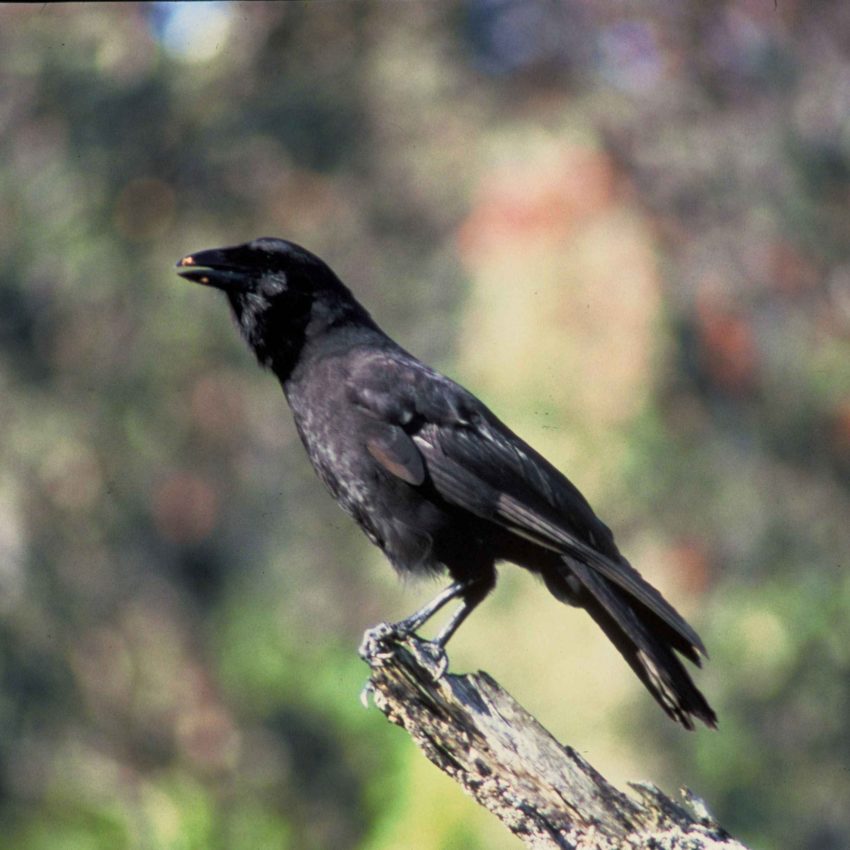Five Alala (Hawaiian Crow) Released into the Wild

January 4, 2017 – For me and many other bird lovers out there, this new year brings renewed hope for the conservation efforts revolving around the Alala (Hawaiian Crow). On December 14, five captive-raised crows were released into the wild at Pu‘u Maka‘ala Natural Area Reserve (Big Island). By the end of the month, three had passed away and the remaining two were returned to the aviary for their safety.
No one yet knows exactly what caused the quick demise of the three released crows but examinations are underway. There is still much to understand and the dedicated crews involved are passionate about learning. After seeing these captive birds up close and witnessing how much work goes into the raising of and caring for these birds, my heart goes out to everyone involved, especially the three lost crows.
The Alala hasn’t been seen in the wild since 2002, so we are all anxious to see if this population can take off again. -Hawaii is known for being the extinction capital of the world, having lost more than half its bird species already. Even though we’re entering a time when we understand threats to these avian communities much more, there are still so many variables to consider. Disease and climate change, yes, but what happens when a species hasn’t been in the wild for almost 15 years? How will a captive-raised bird respond when left to his own devices?
There are so many questions to answer and I’m sure still more questions to come. Although at first I was extremely excited for the birds’ release into the wild, I now find myself much more reserved and patient. Conservation work is tricky business; we must take as much time as possible and understand as much as we can about the Alala. This first release into the wild was one step closer and I commend everyone at the Keauhou and Maui Bird Conservation Centers for their hark work and dedication. Without you, there would be no hope. Thank you for providing that.
*Please note, spelling of Alala does not include the okina or kahako.